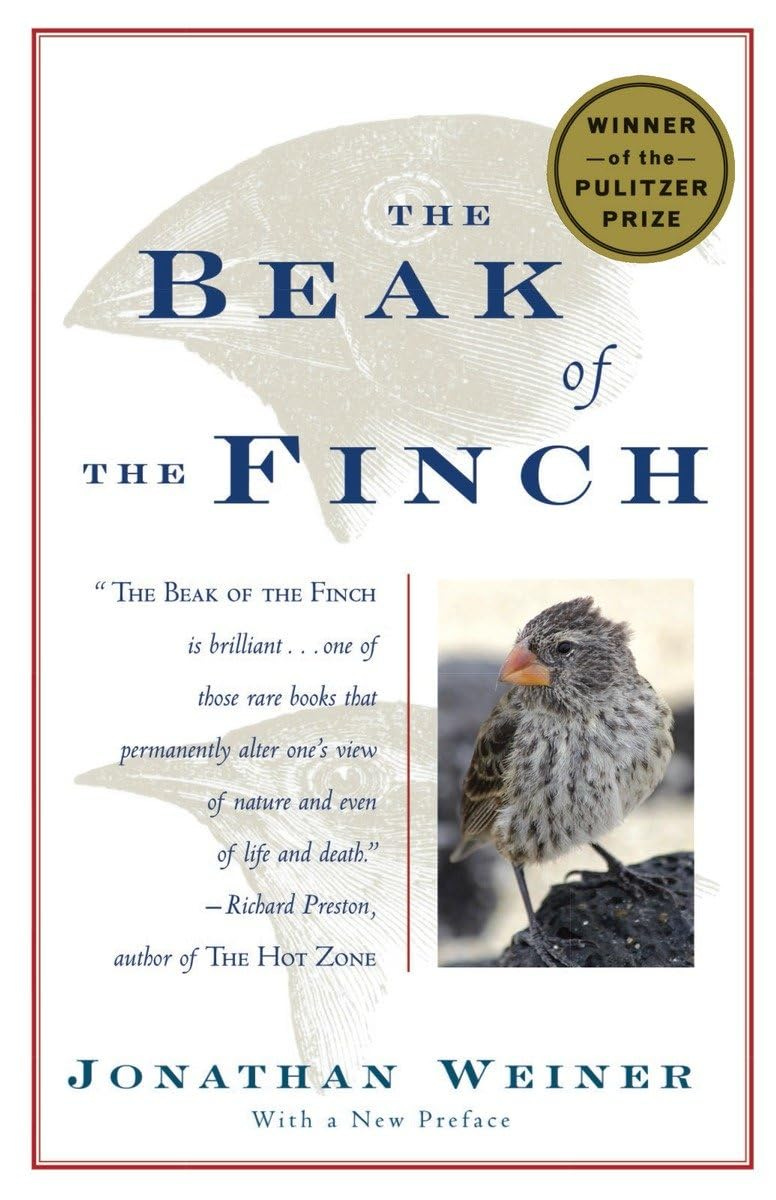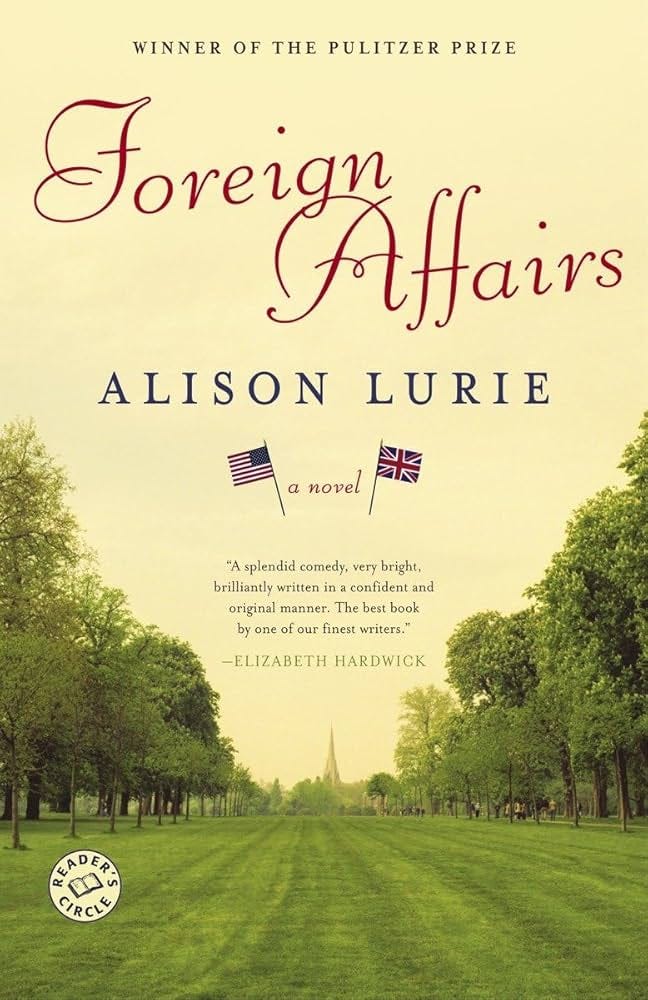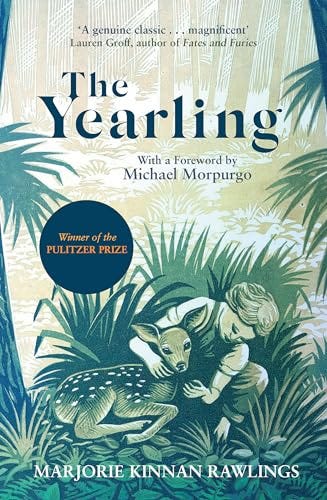What to Read Next: May 23, 2025
Issue #379, featuring short reviews of unheralded Pulitzer winners
Happy Friday readers!
Today’s issue is going to be a little different than what you’re used to. Instead of the usual format, I’m giving you three short reviews of unheralded Pulitzer winners that I’ve recently read.
Not only was this the last week of school for all three of our kids — which is exhausting on its own — but our family of five is moving across the country next week! After 13 incredible years in Colorado, we’re heading to Duluth, Minnesota, just blocks away from Lake Superior.
In light of these uniquely crazy few weeks in our life, the newsletter will be a little unpredictable through mid-June. I’m not totally pausing it, but I won’t really know if I have an iota of spare energy until the time comes. I appreciate your patience amidst a big transition for our family.
Okay — to the books!
The Beak of the Finch by Jonathan Weiner
I haven’t read very much science-focused books as an adult, but this one definitely stands out. Published in the mid-90s, Weiner’s narrative follows legendary scientists Peter and Rosemary Grant on their decades-long journey to document the evolution of finches on a desolate Galapagos island. I learned a lot about biology, evolution, and the jaw-dropping scientific discoveries that don’t seem very well-known even 30 years after the book was published.
Weiner did a terrific job breaking down complex scientific ideas into a readable narrative that I had no problem understanding. The Grants’ dedication and perseverance will stay with me a long time, as will Darwin’s finches unceasing adaptability to change.
Anyone with an interest in science should add this to their lifetime reading list. It’s one of my favorite reads of the year so far.
Foreign Affairs by Alison Lurie
This story is set in the UK, but maintains a decidedly American feel while following two professors on leave from their home country. Vinnie is a 50-something who’s trying to break the mold of what it means to be a single woman of that age; Fred, a colleague, has separated from his wife and finds a new spark in London.
Lurie’s characters don’t start out all that likable, but they all really grew on me by the end. There are ups and downs, growth and backsliding, and new emotional discoveries along the way. The author’s poignant ideas about love, commitment, and aging will especially stay with me.
If you’re into Austenian relational dramas with a modern twist, Foreign Affairs may be right up your alley.
The Yearling by Marjorie Rawlings
As I’ve noted before, the 1920s and 1930s were pretty rough for Pulitzer winners, especially on the fiction side. Many of the winners from that era just don’t hold up today and don’t pass any kind of timelessness test. I didn’t know anything about this book before jumping in, but I found myself surprisingly pleased by the end result.
The Yearling is set in post-Civil War Florida, homing in the Baxter family’s trials and travails as they simply try to survive in a truly wild environment. Young Jody’s life revolves around doing chores for his parents and gallivanting around his homestead. He latches on to the idea of having a pet fawn and succeeds in doing just that — until the fawn starts to grow up and behaves more like an animal than a pet. This tender and earnest story is about love, survival, resilience, and above all, growing up.
Both the writing style and the story reminded me of Mark Twain; it makes sense that legendary editor Maxwell Perkins discovered Ms. Rawlings and her rather unheralded Pulitzer Prize-winning novel. I enjoyed it far more than I expected to.
Thanks so much for reading. Be good to each other.
-Jeremy





Good luck with the move Jeremy. I love a good science book. A lot unfortunately are just boring even though the subject is interesting. My two most recent recommended reads are ‘Why we sleep’, by Matt Walker which is self explanatory and ‘Proust and the Squid’ by Maryanne Wolf. Fantastic book that is actually about the history and science of how we read and how our brains are not designed for reading but that we have to ‘piggyback’ on other brain systems and integrate them to read. Such a good book.
Welcome to Minnesota! Duluth is beautiful!